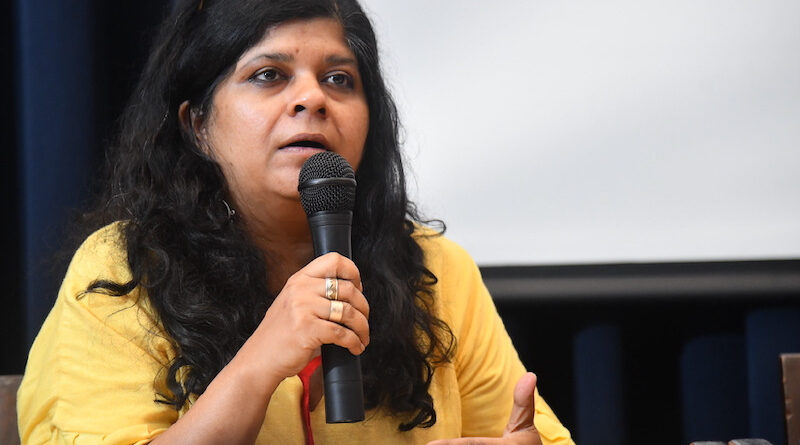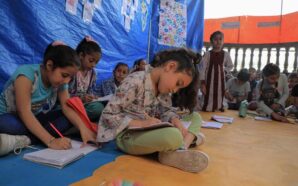[Founded in 2004 with an alternative publishing vision, Yoda Press aims to create lists around subjects which are not usually a priority for other publishers in India, even though they have a critical presence in contemporary discourse, authorship and an audience. Yoda Press is known for publishing on subjects such as sexuality, popular culture, cities and urbanism, architecture as a lived experience, and new perspectives in Indian history and sociology] – info source: Yoda Press
What inspired you to start your own publishing house?
I was working as Commissioning Editor for the History, Religion and Philosophy lists at that time in OUP India. This role was also in keeping with the MA in Islamic Studies at SOAS which I had completed a few years prior. However, I was getting bored with the formulaic kind of humanities commissioning my seniors wanted me to do at OUP India, and I found my attention wandering constantly to the burgeoning discourse in areas such as popular culture, sexuality, urbanism. It was these lists that I ached to develop.
As someone who has worked in the publishing industry for a long time, what changes have you observed in the industry over the years?
Too many to list! The most important ones, of course, are to do with the emergence of social media and the phenomenon of online sales. People in the industry, old timers, I mean, love to hate on these aspects of change, but for a small indie publisher like me, it was these aspects that put us slam bang in the middle of a level playing field for the first time. We had a chance with these changes to gain access to our readership in the same way that a large publisher would, and also get our books to them without being told by bookstore after bookstore that their space was limited and our books too niche.
Can you tell us about a particularly challenging or rewarding project that Yoda Press has worked on?
I think for me it was This Side, That Side: Restorying Partition, the first, and even now, only graphic book on the South Asian Partition, curated for us by the brilliant Vishwajyoti Ghosh. Took three years to be made. We were working with almost 50 storytellers, graphic artists and translators across India, Bangladesh and Pakistan. There were many, many moments when one felt ready to give up. The sheer ambition of the project was so daunting. But our friends at the Goethe Institut who supported the project, Robin and Farah kept us going. When the book finally came out in 2013, it was one of the most cathartic moments of my work life. Vishwa will say the same, I think.
In your opinion, what role does a publisher play in shaping literary culture and promoting diversity in literature?
When I do classroom lectures on the history and philosophy of publishing, I often begin by talking about the scribes who worked in the Scriptoria of Istanbul and the monks who illuminated manuscripts in the monasteries of medieval Europe. These were the first editors and publishers of the world; they took decisions on what texts were to be preserved and passed down through the generations and in what form. After the printing press was invented, the role of the printer-publisher as curator became even more prominent and political. Through human history, publishers and editors have worked hard to keep literary culture alive while also expanding its horizons, and that includes democratizing the access to it. This is where their vital role in promoting diversity in literary culture emerges and as we know, diversity AND inclusivity are being championed with even greater impetus today, and as always, many publishers and editors across the world are on the frontlines of this championing.
As someone who has championed underrepresented voices in literature, how do you see the future of diversity and inclusivity in the publishing industry?
Championing underrepresented voices in our author pool is an undertaking of responsibility, and has to continue, and move in even more interesting directions, but hiring underrepresented voices in our offices and as part of our publishing teams is an undertaking of accountability, to my mind, and when that happens, it will cause the breakthrough that is needed for genuine diversity and inclusivity, which is not just tokenism.
Mentorship can be incredibly valuable in the publishing industry. Can you tell us about a mentor who has had a significant impact on your career?
The most crucial mentor in my working life was Omita Goyal who was Publishing Head at Sage India back in 1999 when I joined there as an editor. She spotted my commissioning acumen even before I knew I had it, and encouraged me to hone that skill which was going to be so very vital for the rest of my career. I owe this to her entirely.
Many aspiring writers struggle with finding their voice and developing their craft. What advice do you have for those who are trying to find their creative voice?
That the struggle is part of the work, and if you don’t experience it, you are not doing the work. I have a lot of faith in writing communities as safe, enabling spaces, and in having writing peers who will support you and gently encourage you but also keep you in your stride and advise you with honesty about the quality of your work. We have celebrated this white, male, privileged notion of writing being a solitary activity long enough; I think it’s time to build communities around us when we write, which will hold us as we do the difficult work of finding our voice.
What are some common mistakes that new writers or publishers make, and how can they avoid them?
In the sort of connected and networked era that we live in, I think it is a mistake to have some latent (old-fashioned), smacking-of-entitlement sort of snobbery about not being on social media to prove that you are a literary island. It is possible to be safe and private on social media and yet use it to one’s advantage. This goes for both writers and publishers.
With the rise of digital publishing and e-books, what challenges do traditional print publishers face?
I only see them as possibilities, not challenges, if one only stopped to think of oneself as traditional print publishers.
Lareeb Tariq is Pakistani marketing and communications specialist with seven years of experience.











